Search
Search Results
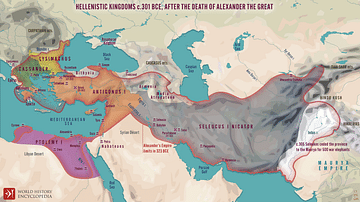
Definition
Hellenistic Period
The Hellenistic Period is a part of the Ancient Period for the European and Near Asian space. The use of this period is justified by the extent of the Hellenic culture in most of these areas, due to the Greek political presence especially...
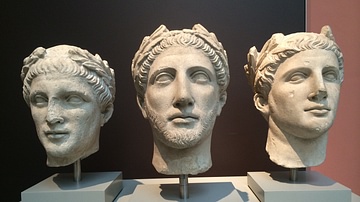
Lesson
Hellenistic Period
We have prepared one lesson plan including classroom activities, assignments, homework, and keys as well as: Open questions adaptable for debates, presentations, and essays Recommended resources to provide you and your students with...

Collection
Between Alexander & Rome: The Hellenistic Period
The Hellenistic Period refers to the time between the death of Alexander the Great (323 BCE) and the rise of the Roman Empire (32 BCE) in which Greek culture spread throughout the Mediterranean and Near East. Beginning with a series of conflicts...
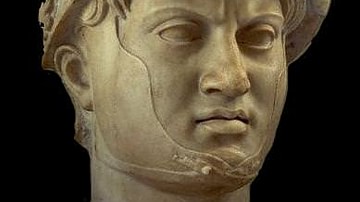
Definition
Pyrrhus
Pyrrhus (also Pyrrhos or Phyrrhus, c. 319 - 272 BCE ) was the king of Epirus in northern Greece between 306 and 302 BCE and again between 297 and 272 BCE. Winning great victories against the armies of Macedon and Rome, he is considered one...
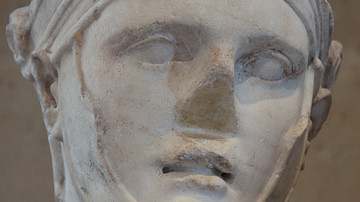
Definition
Seleucus I Nicator
Seleucus I Nicator (l. c. 358-281 BCE, r. 305-281 BCE) was one of the generals of Alexander the Great (l. 356-323 BCE) who made up the group of Diadochi ("successors") who divided the vast Macedonian Empire between them after the death of...

Definition
Wars of the Diadochi
On June 10, 323 BCE Alexander the Great died in Babylon. Although historians have debated the exact cause most agree that the empire he built was left without adequate leadership for there was no clear successor or heir. The military commanders...

Definition
Demetrius I of Macedon
Demetrius I of Macedon, also known as Demetrios Poliorcetes, the 'Besieger' (c. 336 - c. 282 BCE), was a Macedonian king who, along with his father Antigonus I, fought for control of Alexander the Great's empire in the 'Successor Wars'. After...
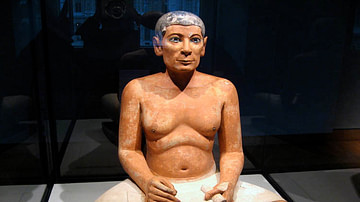
Definition
Ancient Egyptian Government
The government of ancient Egypt was a theocratic monarchy as the king ruled by a mandate from the gods, initially was seen as an intermediary between human beings and the divine, and was supposed to represent the gods' will through the laws...

Article
Elephants in Greek & Roman Warfare
In the search for ever more impressive and lethal weapons to shock the enemy and bring total victory the armies of ancient Greece, Carthage, and even sometimes Rome turned to the elephant. Huge, exotic, and frightening the life out of an...
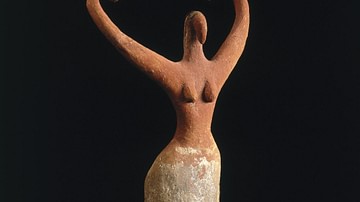
Definition
Predynastic Period in Egypt
The Predynastic Period in Ancient Egypt is the time before recorded history from the Paleolithic to the Neolithic Age and on to the rise of the First Dynasty and is generally recognized as spanning the era from c. 6000-3150 BCE (though physical...